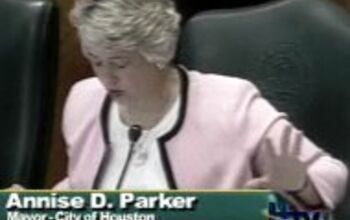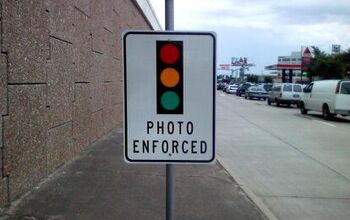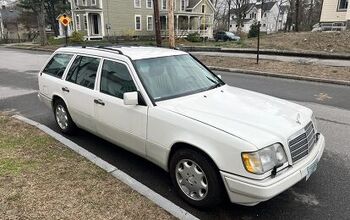Houston, Texas Mayor Flip Flops on Red Light Cameras
Another twist in the red light camera saga in Houston, Texas could leave photo enforcement vendor American Traffic Solutions (ATS) out in the cold. Later today US District Court Judge Lynn N. Hughes is expected to decide whether to grant ATS a restraining order that would prevent America’s fourth largest city from deactivating its automated ticketing machines. Voters in November enacted a charter amendment prohibiting camera use, but Hughes personally decided to overturn their ballot choice saying the voters just “want to run red lights.”
That ruling has not gone over well with the public, and Mayor Annise Parker has been feeling the heat from members of the public and the city council. Late last week Parker reversed course and scheduled a vote this Wednesday that will allow the council decide how to proceed on the issue. The sudden shift left ATS furious.
“In an unprecedented and colossal flip‐flop in position, the city’s mayor has decided to invite city council to again breach its agreement with ATS by placing an agenda item on next week’s council meeting to pass a resolution to turn the red light cameras off,” ATS lawyer Andy Taylor wrote in a court brief filed Friday. “Should council vote to eradicate this public safety program, ATS will incur irreparable harm for which no remedy at law exists.”
With seventy cameras, Houston represents one of the largest single contracts for ATS, and the permanent loss of the city would deliver a massive financial blow to the company which just last month lost the contract with America’s second largest city, Los Angeles, California.
“The city of Houston’s decision to turn the red light cameras off, back on, and now, most likely back off again, has negatively impacted ATS’ ability to do business, including its ability to negotiate contracts in other cities for its services,” ATS General Counsel George Hittner wrote. “Representatives from other cities have expressed concern to ATS personnel about the situation in Houston. ATS’s employees, investors and contractors have also expressed concern about the strength of ATS’ Texas customer contracts and ATS’ contract obligations with third-party vendors.”
Hittner is the son of Judge David Hittner, who has served alongside Hughes for the past twenty-five years. So far, Hughes has sided with Hittner in every important decision, going so far as to exclude the charter amendment sponsors from defending their initiative in court. The sponsors say one way or another those cameras will be turned off, and that ATS should let it rest.
“They poured everything they could into Houston and still lost,” Citizens Against Red Light Camera spokesman Philip Owens told TheNewspaper. “They can’t get over it.”
[Courtesy: Thenewspaper.com]
More by The Newspaper
Latest Car Reviews
Read moreLatest Product Reviews
Read moreRecent Comments
- Flashindapan Will I miss the Malibu, no. Will I miss one less midsize sedan that’s comfortable, reliable and reasonably priced, yes.
- Theflyersfan I used to love the 7-series. One of those aspirational luxury cars. And then I parked right next to one of the new ones just over the weekend. And that love went away. Honestly, if this is what the Chinese market thinks is luxury, let them have it. Because, and I'll be reserved here, this is one butt-ugly, mutha f'n, unholy trainwreck of a design. There has to be an excellent car under all of the grotesque and overdone bodywork. What were they thinking? Luxury is a feeling. It's the soft leather seats. It's the solid door thunk. It's groundbreaking engineering (that hopefully holds up.) It's a presence that oozes "I have arrived," not screaming "LOOK AT ME EVERYONE!!!" The latter is the yahoo who just won $1,000,000 off of a scratch-off and blows it on extra chrome and a dozen light bars on a new F150. It isn't six feet of screens, a dozen suspension settings that don't feel right, and no steering feel. It also isn't a design that is going to be so dated looking in five years that no one is going to want to touch it. Didn't BMW learn anything from the Bangle-butt backlash of 2002?
- Theflyersfan Honda, Toyota, Nissan, Hyundai, and Kia still don't seem to have a problem moving sedans off of the lot. I also see more than a few new 3-series, C-classes and A4s as well showing the Germans can sell the expensive ones. Sales might be down compared to 10-15 years ago, but hundreds of thousands of sales in the US alone isn't anything to sneeze at. What we've had is the thinning of the herd. The crap sedans have exited stage left. And GM has let the Malibu sit and rot on the vine for so long that this was bound to happen. And it bears repeating - auto trends go in cycles. Many times the cars purchased by the next generation aren't the ones their parents and grandparents bought. Who's to say that in 10 years, CUVs are going to be seen at that generation's minivans and no one wants to touch them? The Japanese and Koreans will welcome those buyers back to their full lineups while GM, Ford, and whatever remains of what was Chrysler/Dodge will be back in front of Congress pleading poverty.
- Corey Lewis It's not competitive against others in the class, as my review discussed. https://www.thetruthaboutcars.com/cars/chevrolet/rental-review-the-2023-chevrolet-malibu-last-domestic-midsize-standing-44502760
- Turbo Is Black Magic My wife had one of these back in 06, did a ton of work to it… supercharger, full exhaust, full suspension.. it was a blast to drive even though it was still hilariously slow. Great for drive in nights, open the hatch fold the seats flat and just relax.Also this thing is a great example of how far we have come in crash safety even since just 2005… go look at these old crash tests now and I cringe at what a modern electric tank would do to this thing.


































Comments
Join the conversation
Wouldn't the fact of the son of a friend for over two decades being involved in the case be sufficient reason to recuse oneself? Yes, that was rhetorical. Sadly.
How do you get the cameras out of your city, when the camera company is so deeply entrenched? After all, the camera company has spent a great deal of money installing the cameras, so you can't just cancel the contract - the company will litigate and get a multi-million dollar judgment against the city. I suggest this compromise: Let the cameras continue to run, but limit or prohibit automated ticketing on rolling rights (the Tennessee legislature recently enacted just such a prohibition), raise the yellows on left turns to a minimum of 4 seconds, and add 1/2 second or more to all straight-thru yellows. These very small adjustments will cause ticketing to drop to less than half of what it was before, and because of the "Flexible Payment Plan" or "Cost Neutrality" found in most contracts, the monthly rent owed to the camera company will go way down, too. (Someone may argue that motorists will get used to the longer yellows, and resume running the light when, in fact, running stays down, indefinitely, after a yellow is lengthened. There is no "rebound." See: http://www.highwayrobbery.net/redlightcamsLinksFAQ6Details.html ) Can a city do these things (above) without handing the camera company a cause of action? Listen to what the Tennessee Attorney General wrote, last week, about their new rolling right ban: "While Chapter 425 might arguably diminish the income received under a revenue-sharing agreement [Flexible Payment Plan, or Cost Neutrality] by reducing the number of traffic citations issued, any expected revenue stream was always necessarily contingent on the citizens of the state violating the law in certain numbers. That contingency tends to suggest that the parties have no 'vested right' in a particular level of revenue." ( http://www.tn.gov/attorneygeneral/op/2011/op11-61.pdf ) Please note that any change regarding rolling right tickets must be nuanced. If the city has directed, allowed or caused the camera company to install cameras on lanes which are used exclusively for right turns (no option to drive straight-through), the company could successfully argue that an all-out ban on rolling right tickets unfairly deprives it of any revenue from the equipment it installed on said lanes. If this situation obtains in your city, I suggest that instead of an outright ban, you enact a limit on rolling right ticketing - such as a requirement that the vehicle's speed over the detection loops (called the "trigger speed" or the "threshold speed" and typically set at 10 - 18 mph) must be in excess of 20 mph, before a right-turn ticket can issue. In this way, the camera company would still get some income from the equipment it installed to monitor the dedicated right-turn lanes. And the city would not be seen to be giving a free pass to people who race around corners at ultra high speeds.